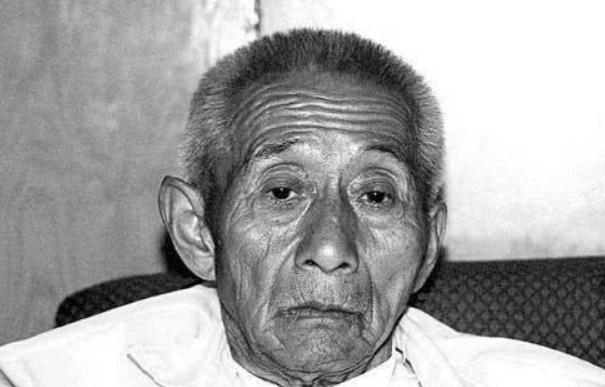After the founding of New China, China won the respect of the whole world for a long time, but even if China has developed well today, it will definitely not forget the humiliating eight-year War of Resistance. During those eight years, Chinese people endured humiliation and burdens, and countless Chinese soldiers sacrificed under the swords and guns of the Japanese to protect their homeland. These eight years are also countless Chinese have been unable to reunite with their families. After the end of the War of Resistance Against Japanese Aggression, this history is too unforgettable, and the Chinese people are probably extremely reluctant to get along with the Japanese, but in Henan, a peasant took care of a Japanese soldier for 47 years, and after he returned to Japan, he actually repaid his benefactor in this way!

The War of Resistance Against Japanese Aggression became more and more intense over time, and shortly after the end of a war in Henan, a peasant named Sun Bangjun found a dying Japanese man on the battlefield. He had wanted to go away, because his village had been constantly ruined and ravaged by the Japanese, and it was impossible not to hate it. However, Sun Bangjun hesitated for a long time, and finally there was no way to convince himself to abandon this dying soldier. But bringing him back to the village was difficult to achieve, so Sun Bangjun first placed the Japanese soldier in a nearby cave. The Japanese soldier was named Ishida Higashishiro, and after Sun Bangjun had placed Ishida, he went back to consult with the people in the village, and no doubt everyone opposed his approach. But Sun Bangjun continued to persuade, and eventually the villagers reluctantly agreed to his approach.
Since then, Ishida has been living in Sun Bangjun's home. The family of the elderly Sun Bangjun was originally relatively poor, and it was inevitable that the other people would be more difficult to spend, but no matter what, the old man would feed Ishida. Ishida is also grateful for the old man's actions, and gradually becomes full of feelings for this place. It was only in 1964 that the old man fell seriously ill, and even though he tried his best to heal him, he eventually left. Even before his death, the old man still told his son Sun Baojie to treat Ishida well and let him go home if he had the opportunity. Sun Baojie has also been keeping his father's words in mind and constantly reacting to Ishida's situation with relevant departments, but there is no news of them.
Ishida had also lived in China for decades, and because the sources of information at that time were relatively closed, all the letters reflecting Ishida's situation were basically sunk in the sea, and gradually Ishida knew that there was no hope of returning home. Although Ishida has long been accustomed to life in China and is very grateful to this family, he can't stop his thoughts about his hometown. It was not until 1972 that China and Japan became more and more frequent, and Ishida rekindled hope of returning home. Sun Baojie also always wanted to help Ishida fulfill this wish, until more than twenty years later, a Japanese delegation came to Henan, China, Sun Baojie learned of this and felt that Ishida was likely to return to his hometown, so he took Ishida to see the delegation.
It was this decision that Ishida met his former comrades-in-arms on a Japanese expedition, and even after so many years, the two had long since changed from young soldiers to white-haired old men, and they still recognized each other, and the old man named Tsuda never thought that Ishida was still alive, they all thought that he had died on the battlefield, including Ishida's family. When Ishida told Tsuda and the expedition how he had survived, the whole expedition was shocked, because it was incredible that Chinese was willing to save a Japanese in that era. Soon after, Ishida returned to Japan with the help of the expedition and with the help of Tsuda and Sun Baojie.
After returning to Japan, Ishida published in the newspaper the story of his years in China, partly to find his family, and on the other hand, to thank Sun Bangjun's family. Later, Ishida has also been contributing to Henan, and ishida's county has learned of this meeting and thanked the family of the elderly Sun Bangjun, so they established a "Sino-Japanese Friendship Taizeng Botanical Garden" in Sun Bangjun's hometown, and also wanted to use it to help the people here get rich. At the same time, people from all walks of life in Japan have donated money to build a primary school and a Sino-Japanese friendship primary school in this place, saying that they can help some children who want to study in Japan. Ishida also gave a sum of money to Sun Baojie's family, but Sun Baojie refused, because he believed that his father must not have saved Ishida for money. In the decades that followed, the Sun family and Ishida were closely linked. The actions of the elderly Sun Bangjun and their family were shocking in that era, and they also had selfless love to have such a move.